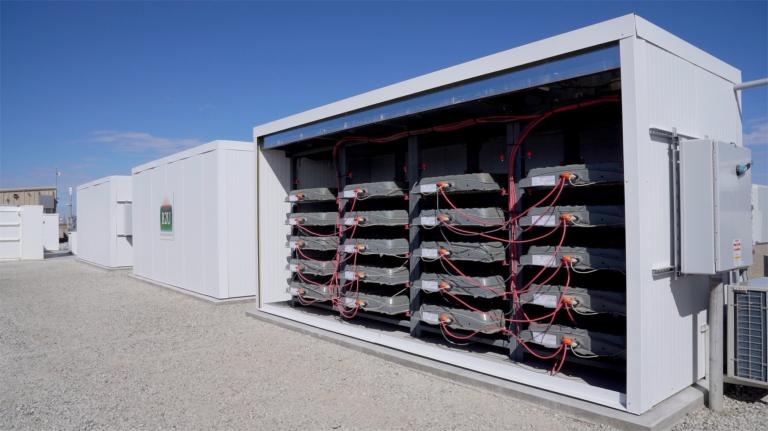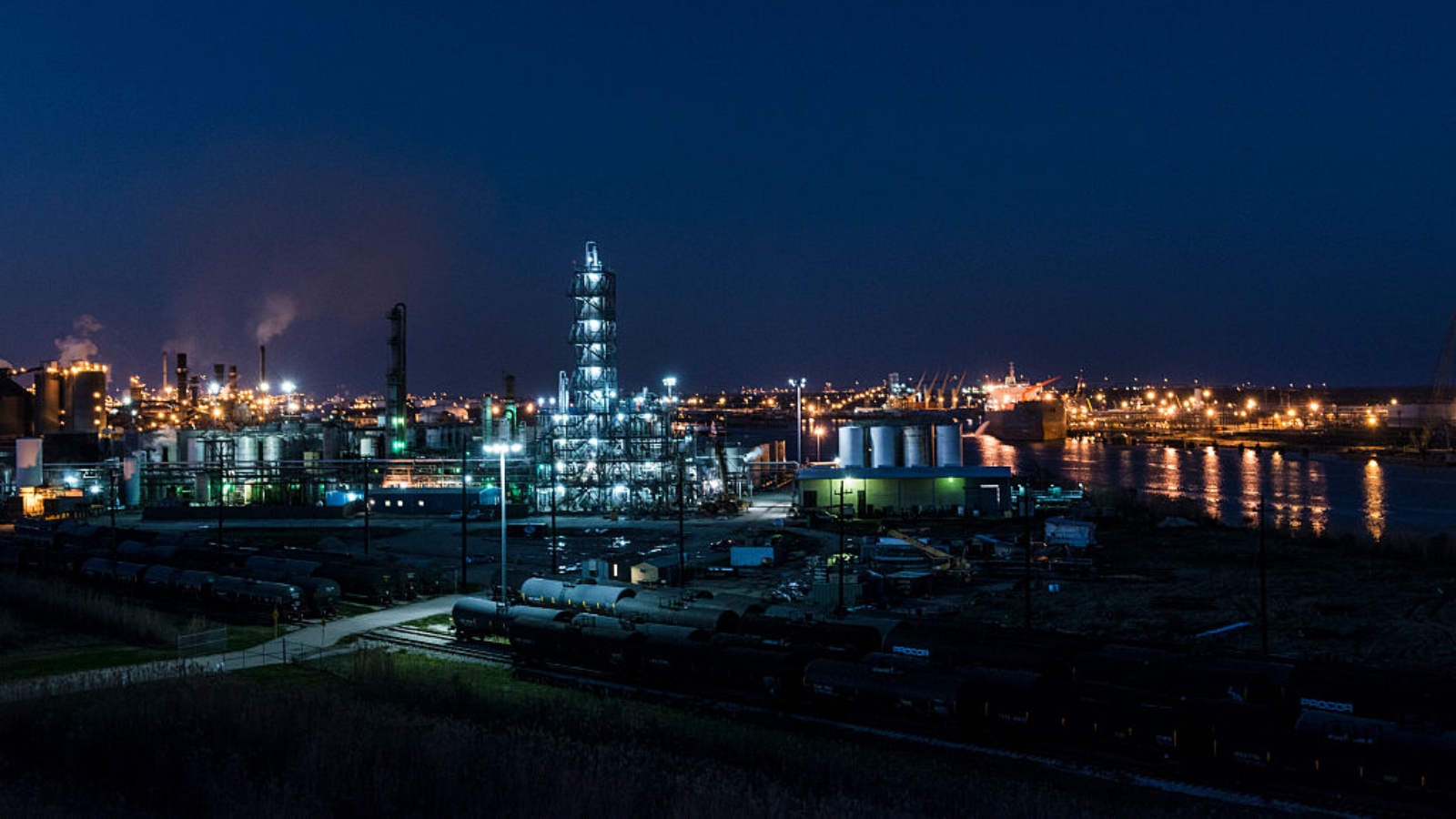The liquefied natural gas, or LNG, industry has exploded across the U.S. Gulf Coast over the past decade, burying once-remote shorelines under hundreds of acres of concrete and steel, where the fossil fuel is cooled so it can be shipped across the globe. The war in Ukraine has fanned the flames of this buildout, with the federal government urging companies to export the fuel to Europe as it weans itself off Russian gas. While the growth shows no sign of slowing — at least two dozen projects are currently underway — one of the industry’s largest new developments now faces a major hurdle. After years of legal battles, a federal court struck down a key permit for Sempra Energy’s new plant in Port Arthur, Texas, last week, calling the state’s decision to approve it “arbitrary and capricious.”
Sempra’s project, named the Port Arthur LNG Export Terminal, is currently under construction along the Sabine-Neches ship channel, which will give it direct access to the Gulf of Mexico. When operational, it would be capable of producing up to 27 million tons of liquefied natural gas every year, giving it the potential to add more than 7 million tons of greenhouse gases to the atmosphere annually.
The facility, and others like it, also emit chemicals like nitrogen oxide and carbon monoxide, which aggravate the respiratory system. Sempra’s construction site is less than 10 miles from Port Arthur, an industrial city where more than 70 percent of residents are Black or Latino and where a labyrinth of refineries and petrochemical plants release toxic chemicals like benzene into the air day and night.
Local residents and advocates opposed to Sempra’s project argue that it will only worsen public health in an area where asthma and cancer rates already exceed the national average. As a result, many celebrated last week’s decision.
“Every step in this fight, we’ve won by standing up for Port Arthur communities of color to breathe free from toxic pollution,” John Beard, a former refinery worker and one of the region’s most outspoken environmental advocates, said in a press release. “When attacked, we fight back — and win!”
In 2020, the Texas Commission on Environmental Quality, or TCEQ, which regulates pollution for the state, initially approved Sempra’s air permit, which specifies the volume of pollutants the facility is permitted to emit annually. Advocates at the local environmental group Port Arthur Community Action Network immediately requested a hearing to challenge the agency’s decision, arguing that it had applied a substantially less strict standard than those applied to other LNG facilities, particularly the Rio Grande LNG project planned for Brownsville in the southern part of the state. When the latter plant applied for a permit to emit pollution from its refrigeration turbines (the giant engines that cool natural gas down to its liquid state), state officials whittled down the facility’s requested emissions levels by 40 percent, a level that the state said was achievable using emission control technology. But Sempra’s permit, which proposed to use the same kind of turbine, was approved unchanged.
Citing the “arbitrary” nature of these decisions, judges at Texas Office of Administrative Hearings ruled in favor of the community last May, but their ruling was quickly rejected by TCEQ commissioners, who pushed the permit through. The federal Environmental Protection Agency’s regional office in Dallas sent a letter to TCEQ, arguing that officials had failed to state a basis for their decision. Advocates then elevated the case to the federal Court of Appeals for the Fifth Circuit, based in New Orleans, Louisiana, where three judges sided with the community last week, effectively nullifying Sempra’s permit.
“When a Texas state agency departs from its own administrative policy, or applies a policy inconsistently, Texas law requires it to adequately explain its reasons for doing so,” the judges wrote, adding that state environmental officials had failed to do so.
Advocates say that the decision demonstrates TCEQ’s willingness to bend its policies to the whims of fossil fuel companies.
“Our clients wanted to be treated in a consistent manner. They wanted to be protected as well as anyone else out there,” Chase Porter, an attorney at Lone Star Legal Aid who worked on the case, told Grist. “And it was pretty straightforward and clear that TCEQ, for no apparent reason other than that’s what the company proposed, allowed them to have higher emission limits than they’ve allowed elsewhere.”
In a statement last Wednesday, Sempra said that it will “continue to actively evaluate options to mitigate any potential impacts of the decision on project schedule and cost.”
Without its requisite air permit, the company may have to restart the permitting process, correcting the inconsistencies identified by the judges. The company plans for the terminal to be operational by 2027.




